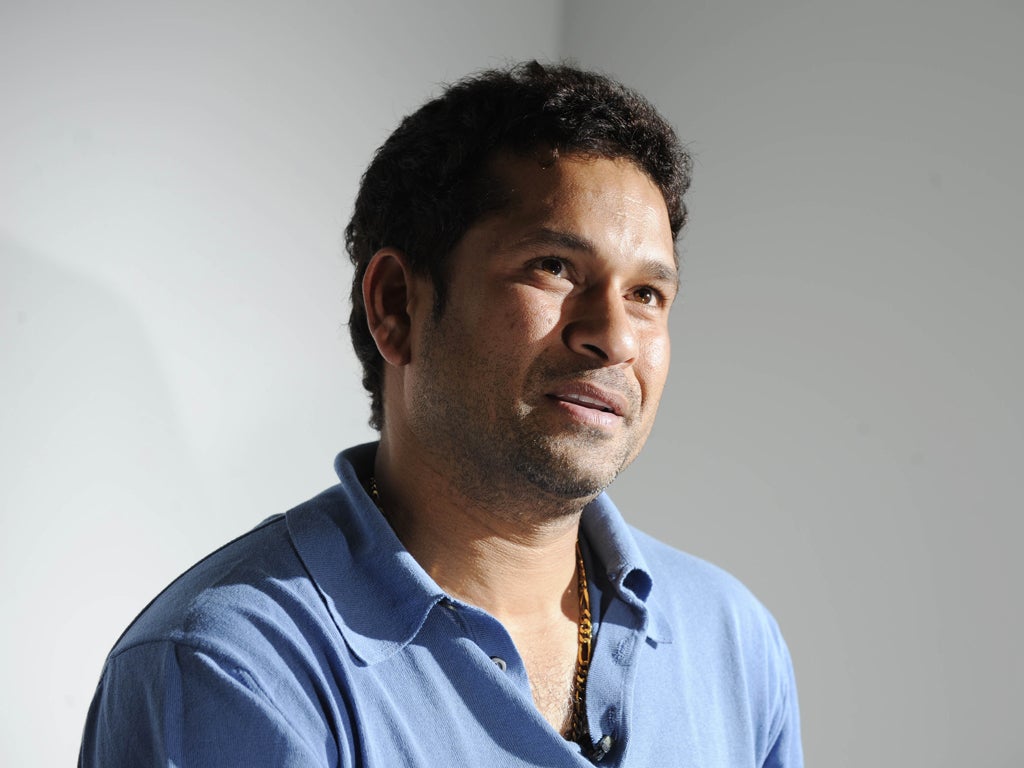Dileep Premachandran: It would be a brave man to drop Sachin Tendulkar – but the end is near
The Indian Angle: It is hard to see how he will still be in the side by the time he turns 40 in April

Your support helps us to tell the story
From reproductive rights to climate change to Big Tech, The Independent is on the ground when the story is developing. Whether it's investigating the financials of Elon Musk's pro-Trump PAC or producing our latest documentary, 'The A Word', which shines a light on the American women fighting for reproductive rights, we know how important it is to parse out the facts from the messaging.
At such a critical moment in US history, we need reporters on the ground. Your donation allows us to keep sending journalists to speak to both sides of the story.
The Independent is trusted by Americans across the entire political spectrum. And unlike many other quality news outlets, we choose not to lock Americans out of our reporting and analysis with paywalls. We believe quality journalism should be available to everyone, paid for by those who can afford it.
Your support makes all the difference.At the end of a week that saw twin failures push Ricky Ponting's career to the precipice, Sachin Tendulkar may have played his last innings on home turf at the Wankhede Stadium. There was near sepulchral silence in the stands after Monty Panesar trapped him plumb in front, and the giant screen cut away to footage of a couple of young fans clutching their heads in despair.
After starting 2012 with innings of 41 and 80 in a heavy defeat in Sydney, Tendulkar (right) has had a year to forget. In a career that dates back to 1989, only once has he averaged less in a calendar year in which he has played at least five Tests. Post-Sydney, he averages 15.3 from 10 innings, a slump comparable to 2003, when he managed just 153 runs in nine visits to the crease.
That fallow period coincided with a tour of Australia. Convinced that he was getting into trouble because he was driving too far away from his body, he decided to eschew the stroke altogether when the new year began with Steve Waugh's farewell Test in Sydney. It was not until he was nearly at 200 that he relented and drove through the off side. He made 241 and 60 in the match, both unbeaten.
Greg Chappell was one of those who backed him to come good on that tour, and Tendulkar's other annus horribilis coincided with Chappell's tenure as India's coach. He made only 267 from 12 innings in 2006, having missed part of the year recovering from shoulder surgery in London.
The years that followed were halcyon ones. In 2010, he stroked as many as seven Test hundreds, aggregating 1,562 runs in 14 Tests. The phrase "Indian summer" seemed to be made for him. Now, as the failures mount, it is hard to see how he will still be in the side by the time he turns 40 in April.
After being thrashed 4-0 in both England and Australia in 2011-12, India's selectors were spared some awkward decisions when both Rahul Dravid and VVS Laxman announced their retirements before the start of the current season. A new selection panel has since taken charge, but it would take five very brave men to end Tendulkar's Test journey mid-series.
As worrying as the mounting list of failures has been the manner of them. New Zealand's pace trio of Doug Bracewell, Tim Southee and Trent Boult all had him bowled in the first series of the season, and Panesar repeated the dose in this game. There have been three leg-befores as well.
As much as the Tendulkar question, India must wrestle with the pitch conundrum. They got exactly what they asked for here – turn and bounce – and were exposed, with Panesar and Graeme Swann exploiting the conditions far better than the home trio. Without Laxman to play the game-changing innings that he was famous for – the low-scoring game against Australia in 2004 turned primarily because of his wondrous 69 – the batting looked callow and bereft of nous.
MS Dhoni, who played the Johannesburg 2006 and Perth 2008 Tests, should also have known how risky it is to try and load the conditions in the home team's favour. At the Wanderers, Mickey Arthur, then South Africa's coach, smirked about "pace and bounce". Shanthakumaran Sreesanth's outswing skittled South Africa for 84, and India won by 123 runs.
At Perth, Ponting picked four quicks, including the much-hyped Shaun Tait. India's pace trio of Irfan Pathan, RP Singh and Ishant Sharma took 14 wickets as they won by 72 runs.
One-trick ponies don't always sprint home first.
Dileep Premachandran is editor-in-chief, Wisden India
Join our commenting forum
Join thought-provoking conversations, follow other Independent readers and see their replies
Comments